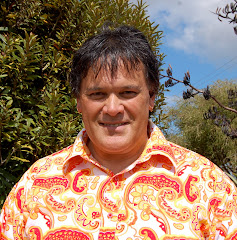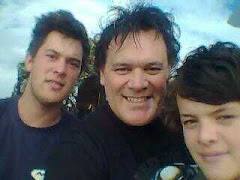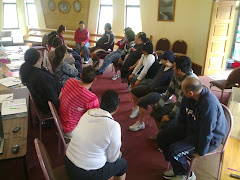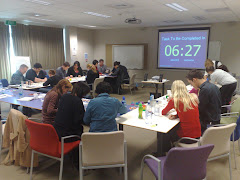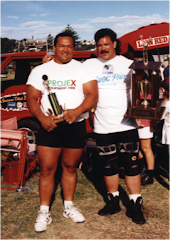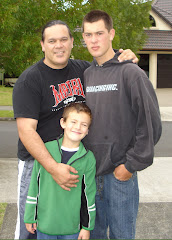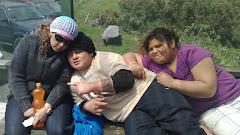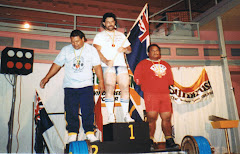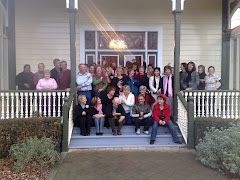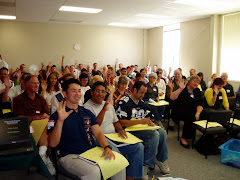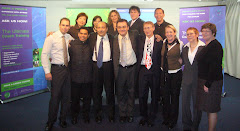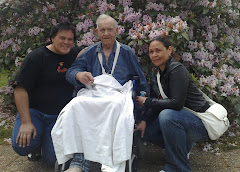I've been wanting to write on this topic for quite sometime. It's close to my heart, and a theme I emphasise when training those who wish to gain mastery of a specific model, be it in coaching, training or leadership. I believe that what I am writing about here, causes the destruction of all new discoveries in mankinds attempts to actualise their potential. What I have seen so often, is people who learn a technique or style and worship the style they have learnt to the detrimant of their continued growth, of what is possible for them. They become entrapped by the models they have learnt, unable to free themselves from it or entertain new possibilities and potential that are avilable to them. Sadly, they can even fight to the death, to ensure the model remains the same, for centuries to come.New Life Destroyed
What is the new life, I am saying is being destroyed?

It is all the new life, birthed from men and woman over the centuries, who have had an epiphany, revelation, creation or advancement of a new way of thinking, about old things. The easiest example that comes to mind, for me to give you, is the progression over centuries of psychology, psychiatry, psychotherapy and it's 1,000's of variations. There are specific and notable people in the history of self-discovery who have made specific break throughs and advancements in the field of personal development, and the understanding of the "psyche".
These people are recognised and acknowledged as having made a significant contribution to the advancement of the field as a whole. These notables have many people, wishing for new life, advancement and growth, who immediately gather around them and seek to learn directly from them. To learn the new model of how to do what they do. Naturally the growing throng of avid followers must become a formalised movement and this movement to become a global organisation - as good news travels fast. (...and rightly so)
You get the idea don't you? Look into all new movements, be they spiritual, psychological, training, management, leadership etc..., you will find a common trend.
Deaths Journey
In short - the sequence of new life's destruction goes through these stages:
A new discovery or advancement of understanding occurs through a particular insight, by a specific person or small group of people.
The sharing of the good news discovery with others.
The gathering of a growing group based around the good news.
The election of a recognised leader of the group.
A call to formalise the discovery into a documented and stylised model.
The maintaining and containment of the model. With some variations accepted, as it is (or not) applied to other fields - while maintaining the original integrity of the originator.
The resistance to any type of extension, challenging or discarding of the now formalised model.
The entrapment of the movements followers, by the need to maintain the model and in doing so, over time, resulting in the death of the life that birthed the original new advancement. Naturally the movement must resist (vehemently) any new way of doing what they have done for so long, to maintain the status quo!
They also will identify themselves by the name of the movement and fight to maintain their identity.
Am I Clear?
So do you see what I am saying here? Are you getting it?
The dangers I have observed in every movement I have embraced in my learning journey, is the death of the movement based on what I think is a human need to ritualise, canonise and indoctrinate the new discovery, resulting, sooner or later, in it's demise, death and destruction.
Am I saying that you are not to embrace or avidly learn any new model that breaths new life into old bones.
NO!
What I am saying, is learn the model, learn it well and master the model. Discard the model to the degree that is necessary for you to continue to extend yourself on a long term, continuous basis. This will result in the continued growth of the field you have mastered and will place you, often, back into the position of being a learner once again.
I believe there is a need to constantly challenge the model as you master it. To seek out new techniques and understandings. By testing and discarding what you once held sacred, when learning the model you will be contributing back to the domain you are passionate about. Learn the rules also, to learn how to break the rules and make new rules to discard them also as you learn and grow.
A Professional Approach
An example I can give you is when I am providing coaching. I have learnt many models that generate change and I've embraced them all. To generate change for my client I must be free, and willing to break the benchmarks, rules or doctrines of the accepted coaching models I have learnt, for me to continue to learn new ways to generate change byway of my coaching. In doing so, I am free to customise my coaching to align with the specific needs of the client and support them in their change process and self actualisation.
For me to use a formalised, systematised approach based on the rules of a learnt model is too limiting for me and negates the need I have to meet my client where they are at. By having this attitude as I coach, I am free to meet them without a predetermined approach, yet fully equipped with an expansive coaching model and knowledge, yet free from it at the same time!

While I do train people in a specific model of coaching, In my opinion you must seek to move beyond the model you've learnt. You are not to be limited by the model, but to use it solely as a tool to further advance your skill level and to discard it, as you gain new ground as a coach.
This will be very challenging for those who hold tightly to their formalised, ritualised methods of doing what they do (in every profession). I am challenging in this message the very essence of what they have discovered and fought tooth and nail, to gain a professional foothold as an accepted method of operation.
Take a quick look at religion, management, education, psychiatry, medicine etc... Each one fighting for their place as being "The Way" and the ONLY way!
In Closing
Ok. I've written enough for now. Hopefully, to have begun to make my point.
Seek to learn a technique, style, or model. Master it knowing you will discard it (in part or in whole) while taking from it what works, and adding to it by challenging all things considered once sacred, when you were first learning it.
Learn form to be free from form!
Use what you need to know, knowing that it has a "best before date", that it has an "expiry date". To avoid the destruction of any new life discovery, we must be willing to accept the field will evolve, be extended. To be willing to discard old sacred cows and embrace new life, ideas, techniques and styles, that births change and progress.
A Touch of Sarcasm
If you want a new life discovery destroyed, please follow the numbered points I've listed above and you'll achieve it within a short time frame. A sure sign that you're well on your way to destroying it is, you'll fight over how to protect the model from the heretics that threaten to undermine the way things are done!
Whew! - I guess that qualifies me as a heretic then ( ...am I alone out there?) - While others may consider this approach revolutionary the majority will have you burnt at the stake!!!
All the very best as you aim to have continuous growth and new life - free from rituals, routines and form.
 know over time, are able to recognise us by our predictable responses that they've learnt from their experiences of being with us in a variety of situations.
know over time, are able to recognise us by our predictable responses that they've learnt from their experiences of being with us in a variety of situations.
 you focus on, consistently constant, self esteem are just 3 of many articles found on this blog site that will give you an insight into how to rid yourself of habits that are destructive or irritating you. (...or those around you!)
you focus on, consistently constant, self esteem are just 3 of many articles found on this blog site that will give you an insight into how to rid yourself of habits that are destructive or irritating you. (...or those around you!)![Reblog this post [with Zemanta]](http://img.zemanta.com/reblog_e.png?x-id=e9110ab5-4a29-41b4-89a5-9de8b56d2ac3)


![Reblog this post [with Zemanta]](http://img.zemanta.com/reblog_e.png?x-id=5985c205-1c68-4e76-9575-cf008dc70ab0)





















